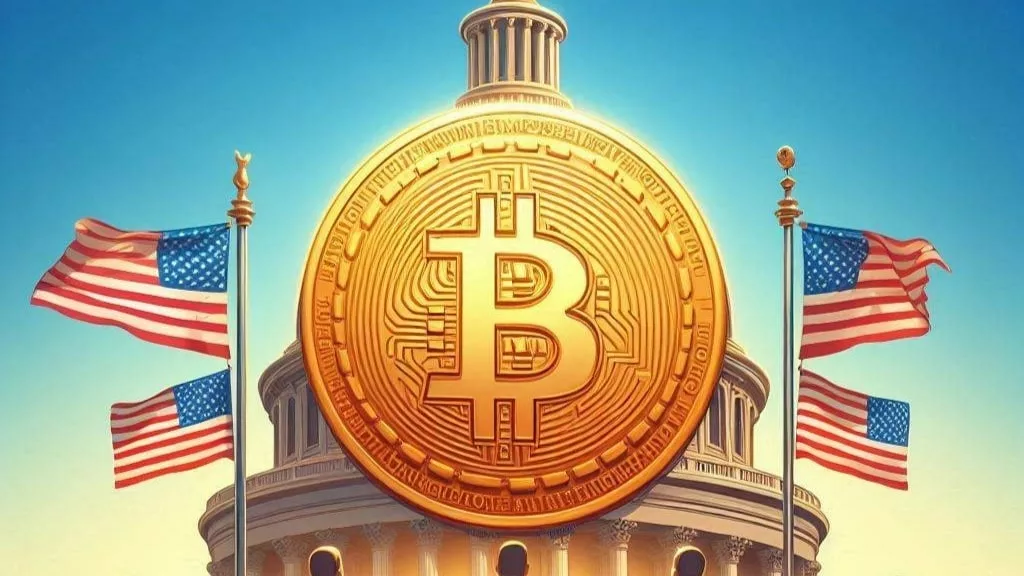
The U.S. government’s increasing Bitcoin (BTC) holdings, combined with President Trump’s much-anticipated but underwhelming crypto summit, has fueled a new wave of debate among cryptocurrency enthusiasts and market analysts. The growing concern? The potential for Washington to wield significant influence over Bitcoin’s future, an asset originally designed for decentralization.
The U.S. government currently holds a massive 187,236 BTC, a number that remains high despite a reduction from the peak of over 240,000 BTC in 2023. These holdings, amassed mainly through asset seizures like those from the Silk Road and Bitfinex exchanges, have caused substantial market fluctuations in the past whenever the government decided to sell off any of its BTC stash.
According to blockchain analytics firm Glassnode, these holdings remain a volatile factor within the market, as their liquidation often leads to sharp price drops. The mere existence of such a large reserve in the hands of the government raises a fundamental question: Could the U.S. be shaping Bitcoin’s future?
Bitcoin was created as a decentralized digital asset, free from government control and regulation. However, the government’s increasing involvement in holding significant amounts of BTC suggests that Washington’s influence on the cryptocurrency could grow, especially if liquidation strategies change or if the reserves are used in broader economic or policy decisions.
This shift in control has led to increased skepticism, with critics fearing that the very nature of Bitcoin is being altered by government intervention. The potential for political factors to affect Bitcoin’s value raises serious concerns about the future of an asset that was once synonymous with financial independence and freedom from state control.
President Trump’s White House Crypto Summit, held recently, was heralded by many in the crypto industry as a pivotal event that could mark a shift in the U.S. government’s stance on digital currencies. Industry figures had hoped for substantial policy declarations that would support crypto businesses and ease the regulatory burdens many face. However, the summit left many disappointed.
Instead of unveiling clear regulatory strategies or introducing major reforms, the event was marked by vague promises, excessive praise for Trump, and a lack of concrete action. While some industry leaders showed support for Trump’s rhetoric on reducing federal regulation, others saw the summit as a missed opportunity to address critical issues facing the industry.
NFT trader Clemente expressed his frustration, saying, “That was the most embarrassing thing I’ve ever witnessed. Is everyone just worshipping Trump now?” He and other critics pointed out that Trump’s statements often appeared unprepared and overly simplistic, focusing more on generic praise for the cryptocurrency space rather than addressing the real challenges it faces.
Even economist Peter Schiff took to social media to denounce the summit, calling it “a disgrace” and “a blight on whatever legacy Trump leaves.” Schiff, a known critic of Bitcoin, argued that the summit’s lack of substance only furthered the perception that Trump was more focused on political theater than addressing the needs of the crypto community.
However, not everyone saw the summit in a negative light. Coinbase CEO Brian Armstrong, for instance, praised Trump’s leadership, stating that the event had encouraged him to hire 1,000 new employees in the U.S. this year. Armstrong’s position reflects the divide within the crypto community — some see Trump as a figure who could bring much-needed regulatory clarity to the space, while others fear that cozying up to the establishment may compromise Bitcoin’s anti-government roots.
Despite the high expectations surrounding the summit, Bitcoin’s price action tells a different story. In the wake of Trump’s remarks, Bitcoin saw a notable dip, dropping to around $86,457 at the time of writing. Technical indicators also suggested weak market sentiment, with the Relative Strength Index (RSI) sitting at 42.50, a level that signals a lack of strong buying pressure.
The On-Balance Volume (OBV) metric, which tracks trading volume to assess market sentiment, remained negative, pointing to a decrease in demand for Bitcoin. This suggests that traders, who had anticipated positive regulatory news or a bullish stance from Trump, were left disappointed by the lack of concrete policy changes.
The market reaction has led some analysts to speculate about Bitcoin’s near-term prospects. The cryptocurrency could rebound if buying pressure intensifies, potentially pushing the price back toward the $88,000 mark. However, if the current trend of weak sentiment persists, Bitcoin could see further declines, with a possible drop to $84,000.
Adding an extra layer of uncertainty to the market is the potential for another round of Bitcoin liquidations by the U.S. government. Given the size of its holdings, even a small shift in the government’s strategy could lead to significant market volatility. The combination of government influence and market uncertainty has many wondering whether Bitcoin can remain the decentralized, anti-establishment asset it was originally envisioned to be.
The ongoing debate over the U.S. government’s influence on Bitcoin raises larger questions about the future of the cryptocurrency movement. Bitcoin’s creation was rooted in the desire to create a financial system free from government control, a decentralized network that could empower individuals worldwide.
But as the U.S. government continues to hold a significant portion of the global Bitcoin supply, and as figures like Trump gain influence within the crypto space, some are concerned that the very principles that Bitcoin was built upon are being compromised.
The crypto industry, once driven by the ideals of decentralization and independence from traditional financial systems, now faces the possibility of political capture. As industry leaders and policymakers jockey for influence, the question remains: Will Bitcoin continue to represent financial freedom, or will it become just another asset controlled by the state?
For now, the future of Bitcoin remains uncertain. As the market continues to navigate these turbulent waters, both Bitcoin’s price and its core ethos hang in the balance.


Get the latest Crypto & Blockchain News in your inbox.